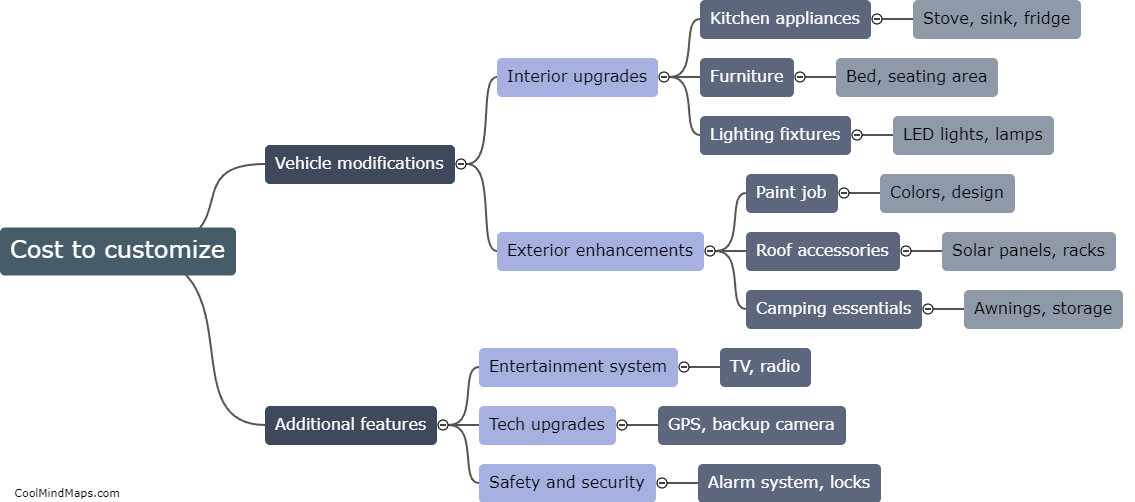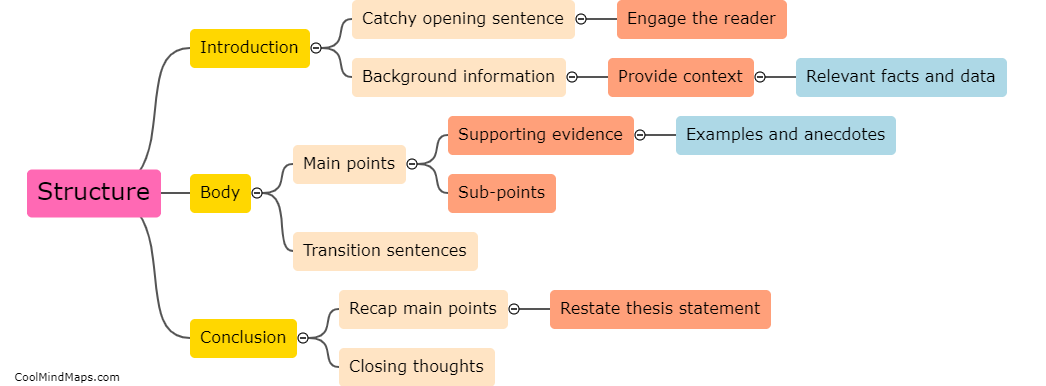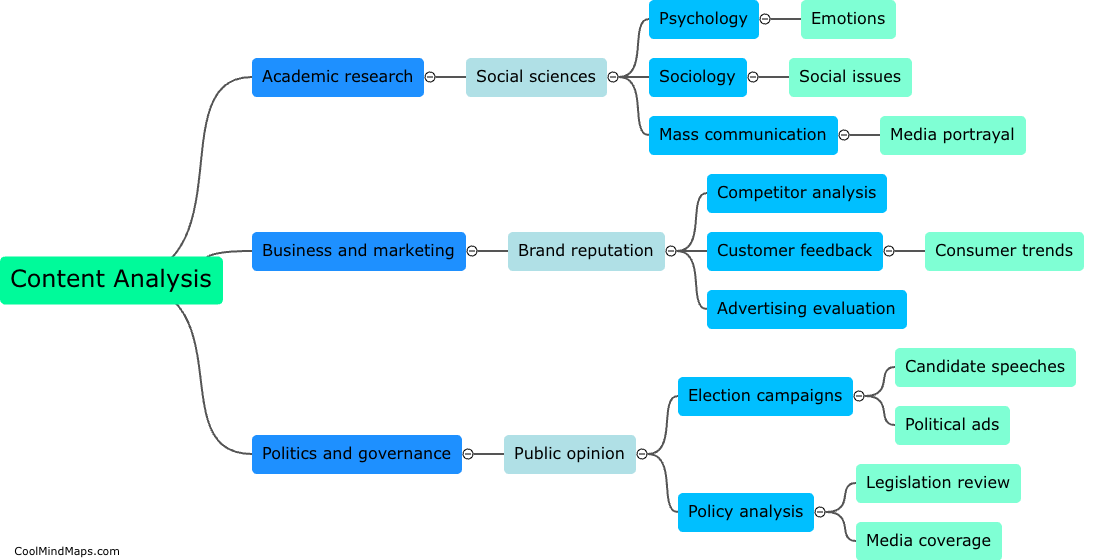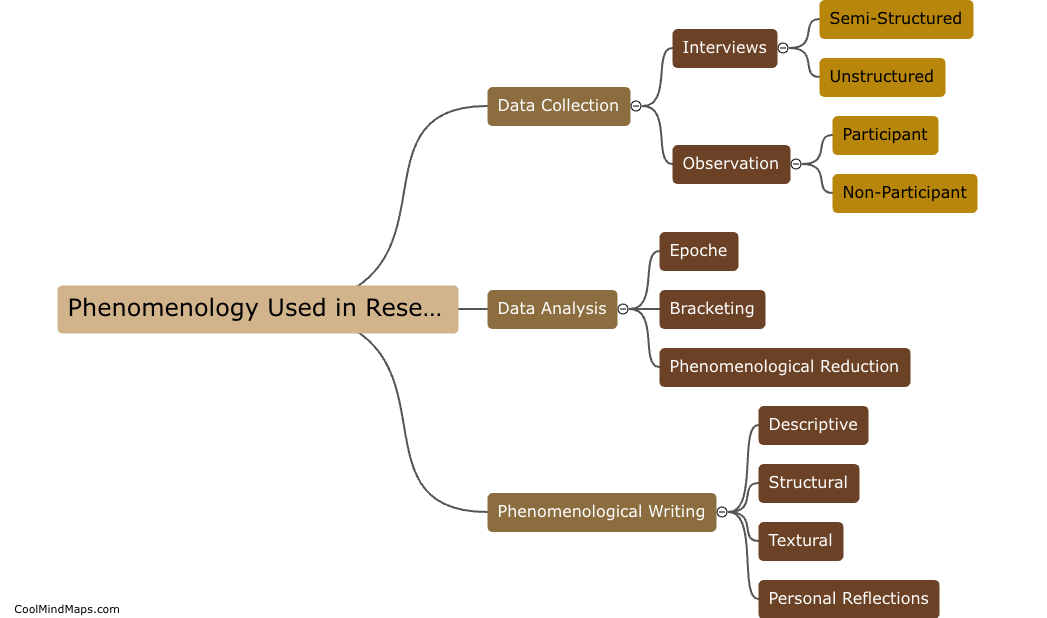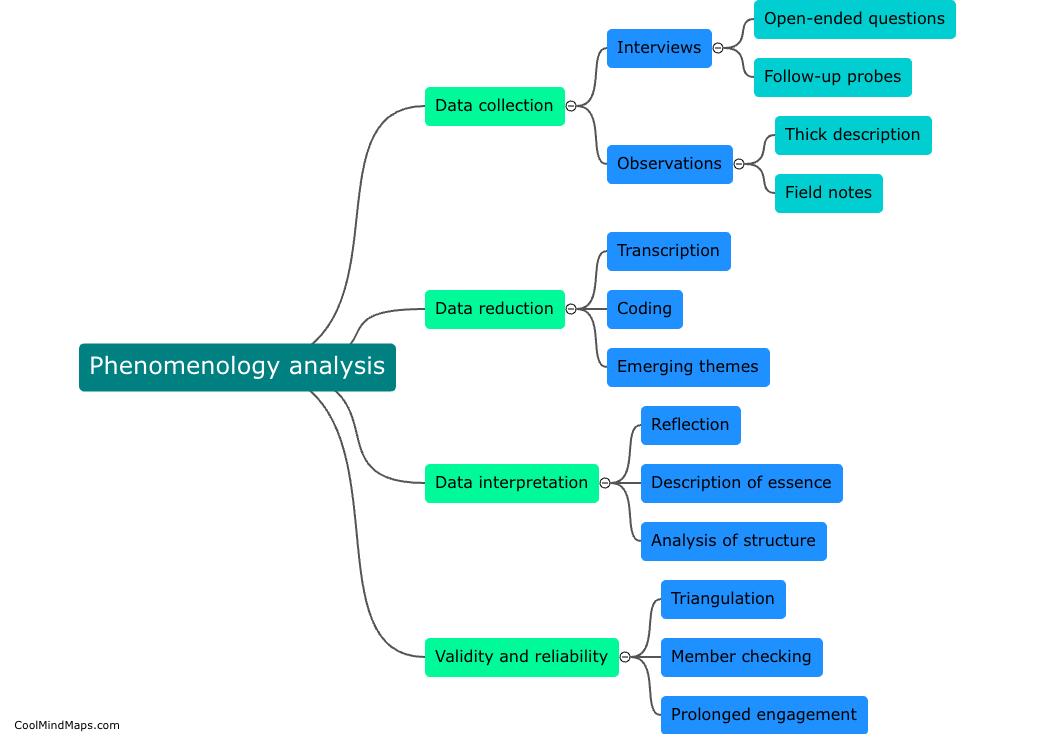What are the key concepts of phenomenology?
The key concepts of phenomenology include intentionality, bracketing, epoché, lifeworld, and intersubjectivity. Intentionality refers to the notion that consciousness is always directed towards something in the world. Bracketing involves setting aside preconceptions and assumptions in order to examine experiences objectively. Epoché involves suspending judgment in order to examine phenomena as they appear to us. Lifeworld describes the everyday world that we inhabit and that shapes our experiences. Intersubjectivity refers to the relationship between individuals and the ways in which they empathize with one another's experiences. Together, these concepts form the foundation of phenomenology, allowing us to explore and understand the ways in which our subjective experiences shape our perception of the world around us.

This mind map was published on 20 April 2023 and has been viewed 69 times.
